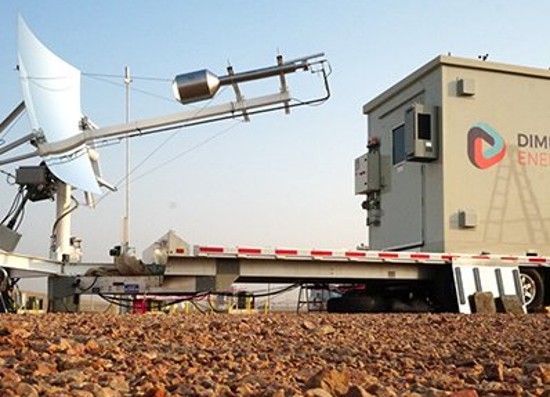The NRG COSIA Carbon XPRIZE, a $20 million USD competition that concluded in the spring of this year asked companies to convert carbon dioxide (CO2) into useful products. Its sponsors were NRG, a U.S. power company, and COSIA, the Canada Oil Sands Innovation Alliance, the latter a consortium of more than a dozen energy producers supporting innovation to improve the environmental performance of oil sands operations and products. On the XPrize site, Marcius Extavour, Prize Lead described the many companies that had thrown their hats in the competition ring stating, “The diversity of technologies and products is really exciting. Teams are trying to make everything from carbon fibre to toothpaste, to building blocks.” The two winning entries each were awarded $7.5 million for converting the most CO2 into products with the highest value as determined by two factors: how much was converted, and the net value of what was produced.
One of the companies inspired to enter was Dimensional Energy, an Ithaca, New York startup. It got to the semi-finals but didn’t make it to the final ten. Dimensional Energy was founded based on research coming out of Cornell University. The company developed a photocatalytic reactor that concentrated sunlight and combined with captured CO2 and water converted the mix into synthetic jet fuel. Inputs were all natural: sunlight, CO2 and water.
Despite not reaching the finals, the company has not been deterred from its goal to become an alternative fuel provider to the aviation industry. To achieve its goal the company has been operating a project in the Tucson, Arizona area over the last year (see image above) where it has installed a pilot project that includes a large mirror to concentrate sunlight which then powers its photocatalytic reactor to transform CO2 into fuel. The source of the CO2 can come from captured emissions from transportation or the energy industry (fossil-fuel-burning power plants with CO2 capture technology).
In a recent article appearing on the website Fast Company, Jason Salfi, co-founder and CEO of the company is quoted stating, “We remove the need for any sort of fossil fuel inputs” in referring to the output their technology produces, a synthetic jet fuel equivalent to commercially available fuel stocks on the market today. Of course, his comment doesn’t take into consideration how he is sourcing the CO2. But if combined with direct-air CO2 capture, however, the inputs issue is resolved.
Another downside for the moment is cost, but Salfi sees this as a temporary challenge while the company scales up from demonstrating that its technology works to full commercial production. At its current site, the company produces 75 litres (20 U.S. gallons) of synthetic jet fuel per day. The cost converts to $7.26 USD per litre ($27.00 per gallon) which is prohibitively expensively. Company forecasts, however, based on information from their website sees the scale of production by 2023 achieving a price one/tenth of the above, and by 2025, one/twenty-seventh or at present value $0.38 USD per litre ($1.00 a gallon). Current jet fuel pricing per litre is around $1.24 USD (equivalent to over $4.60 per gallon).
The company also believes that by 2025 its only other impediment to replacing jet fuel made from fossil fuels will be the waiving of current regulations that limit the amount of synthetic fuel to 50% of total volume. Whether airplanes fly in the future using 100% synthetic jet fuel produced by Dimensional Energy or provide the fuel for takeoffs and landings with hybrid-powered airplanes that use fuel cells or battery power, the company sees a future for its technology.
Why? Because in its mission statement it establishes its raison-d’etre, an overburdened atmosphere with 200 years of carbon dioxide emissions that needs an energy solution to do the right thing for the environment. We all need this so if it can stay the course and remain viable, Dimensional Energy could contribute to saving us from ourselves as it helps all of humanity in pursuing a net-zero emissions future.
















